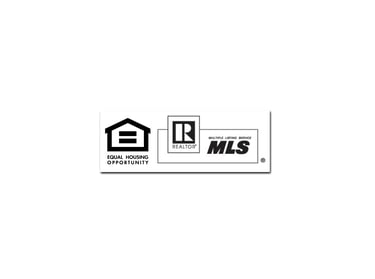Unlocking the American Dream: A Guide for Buying Property for a non-US Citizen in the U.S.
The idea of homeownership is a fundamental part of the American Dream. But what if you're an immigrant? Can you buy a home in the U.S.? The short answer is yes! Whether you're a permanent resident, visa holder, or even undocumented, there are pathways to owning a home and securing your future. Let's break it down.
NS Team
5/18/20252 min read


Many people assume you must be a U.S. citizen to buy property—but that’s simply not true. There are no legal restrictions preventing non-U.S. citizens from purchasing real estate. This means that regardless of your residency status, you can invest in property, build equity, and create a home of your own.
How to Finance Your Home Purchase
While some immigrants choose to pay in cash, many will require financing through a mortgage. Here’s how you can secure a loan:
ITIN Mortgages: If you don’t have a Social Security Number (SSN), you may still qualify for a mortgage using an Individual Taxpayer Identification Number (ITIN). Some lenders specialize in ITIN loans, offering opportunities to non-citizens without an SSN.
Building Credit: Establishing a credit history can significantly improve your chances of mortgage approval. Consider opening a secured credit card or taking out a small loan to build your credit profile.
Higher Down Payments: Some lenders require non-citizens to make a larger down payment. This can range from 20% to 30% of the home’s price, which reduces risk for the lender and can also lower your monthly payments.
Understanding Interest Rates: ITIN mortgages and loans for non-citizens sometimes come with higher interest rates. Be sure to shop around for the best terms and rates that fit your financial situation.
Challenges to Consider
While homeownership is possible for immigrants, there are some obstacles to be aware of:
Limited Lender Options: Not all banks and mortgage lenders offer ITIN mortgages, so it’s important to research and find lenders who work with non-citizens.
Tax Implications: Homeownership comes with tax responsibilities, both in the U.S. and potentially in your home country. Consulting a tax professional can help you navigate these responsibilities.
Legal Considerations: Immigration status can sometimes impact your ability to get a mortgage or affect your long-term homeownership plans. Seek guidance from real estate professionals and immigration attorneys if needed.
Taking the First Steps Toward Homeownership
Buying a home is a significant milestone, and as an immigrant, you have the ability to invest in your future. Here’s how to start your journey:
Assess Your Finances – Determine your budget, credit standing, and how much you can save for a down payment.
Research Lenders – Look for banks or mortgage companies that offer ITIN loans or programs for non-citizens.
Consult Professionals – Work with real estate agents and mortgage brokers who have experience assisting immigrant buyers.
Start House Hunting – Once pre-approved for a loan, you can begin searching for a home that fits your needs and budget.
Final Thoughts
Owning a home in the U.S. isn’t just a dream—it’s an achievable goal for immigrants willing to navigate the process. With the right knowledge and resources, you can secure a place to call your own and build a strong financial future.
Thinking about homeownership? The NS Team is here to help guide you through the process. Reach out to explore your options and take the first steps toward finding your dream home at your own pace.




